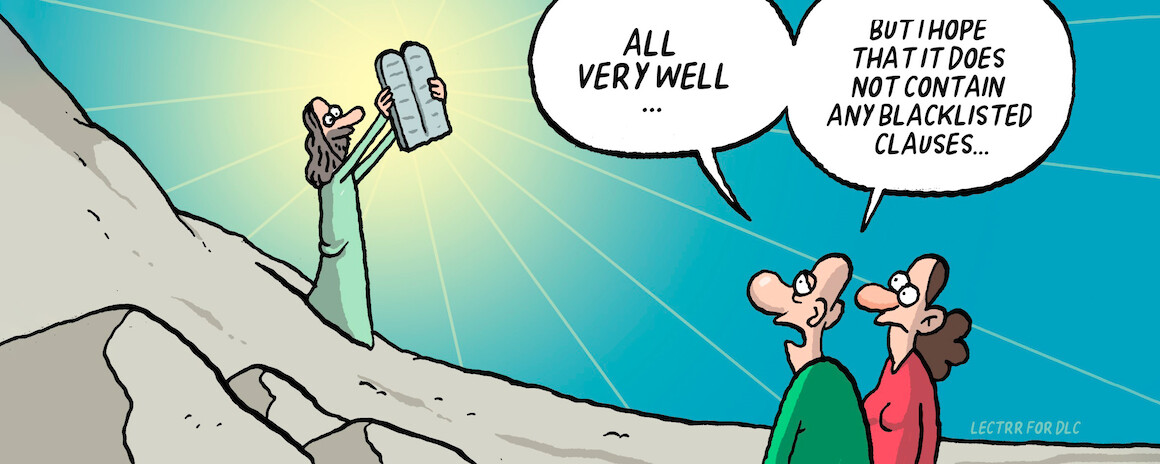What?
Online sales restrictions are under close scrutiny from the European Commission and national competition authorities. It is well established that outright online sales bans are qualified as hardcore restrictions, which cannot benefit from the VBER.
However, also with respect to other online sales restrictions businesses must tread carefully. For example, in a selective distribution system, brand owners may set online sales criteria in order to protect their brand when distributors are selling online. The European Commission provides that such criteria imposed by a brand owner or supplier with regard to online sales must be overall equivalent to the criteria imposed for offline sales in a selective distribution system. This is referred to as the “equivalence principle”.
If those online criteria are considered not to be equivalent to the offline criteria, the VBER position is that brand owner’s distributors are prevented from using the internet to reach more customers, which boils down to an illegal restriction of active or passive sales.
Now?
Article 4(c) VBER prohibits the restriction of active or passive sales to end users by members of a selective distribution system. According to the European Commission, within a selective distribution system the selective distributors must be free to sell (both actively and passively) to all end users, also with the help of the internet. In particular with regard to internet sales, the European Commission regards any obligation which dissuades members of a selective distribution system from using the internet by imposing criteria for online sales which are not overall equivalent to the criteria imposed for offline sales as hardcore restrictions. This means that the system cannot benefit from the VBER.
The current Vertical Guidelines explicitly state that the equivalence principle does not require that the criteria imposed for online sales must be identical to those imposed for offline sales, but rather that they should pursue the same objectives and achieve comparable results and that the difference between the criteria must be justified by the different nature of these two distribution modes. This is illustrated by a number of examples in the current Vertical Guidelines.
The future as of 1 June 2022?
With regard to the equivalence principle, the European Commission seems to be moving in a new direction by focusing on the actual restriction of the use of the internet. In the current proposals for the Vertical Guidelines, the equivalence test for hybrid distribution scenarios is abandoned.
In the current proposals of the Vertical Guidelines a closer link is made with respect to the prevention of the effective use of the internet. Considering the different characteristics of online and offline sales, a supplier operating a selective distribution system may impose online criteria on its authorized distributors which are not identical to the offline criteria, provided that the authorized distributors are not directly or indirectly prevented from effectively using the internet when selling the contract goods.
The following practical example is included in the current proposals of the Vertical Guidelines:
A supplier may establish specific online requirements to ensure certain service quality standards are complied with, including (i) the set-up and operation of an online after-sales help desk, (ii) a requirement to cover the costs of customers returning the product or (iii) the use of secure payment systems. According to the current proposals of the Vertical Guidelines, such requirements do not amount to a blacklisted customer or territorial restriction.
In practice?
The equivalence test is abolished and replaced by a new “effective use of the internet” test under the new VBER regime.
Assessment?
We welcome the abolition of the equivalence test and the introduction of a closer link with the actual restriction of the use of the internet. Even though the equivalence principle is not unreasonable, legal certainty is served by the new “effective use” test.
For example, it is often difficult to assess what is (not) equivalent, given that online and offline sales are operating in divergent worlds (e.g. is a 7/7 after-sales service in a webshop “equivalent” to a less demanding after-sales service in a physical store?). It may likewise be difficult to compare online and offline requirements in the absence of a relevant “offline” counterpart (e.g. requirements regarding the use of search engines and web analytics software). These interpretation difficulties are cleared with the new test, which will be in the interest of the hybrid distribution strategies of many businesses.
Want to know more? Stay tuned...
Counting down towards 1 June 2022 we aim to provide you with regular updates and the necessary legal knowhow in order to fully prepare your business for the future. Please also check out the Distribution Law Center platform and our LinkedIn page for much more information on the laws governing vertical agreements, covering both competition and commercial law. 27 specialized teams from all over the EEA are working hard to turn the platform into your favourite source of guidance and information.
A translation of this Countdown newsletter is available in the following languages: Croatian, Czech, Portuguese, Romanian, Slovak, Swedish.
Read the available DLC Countdown newsletters on the changes to be expected here.





Sign in to post comments